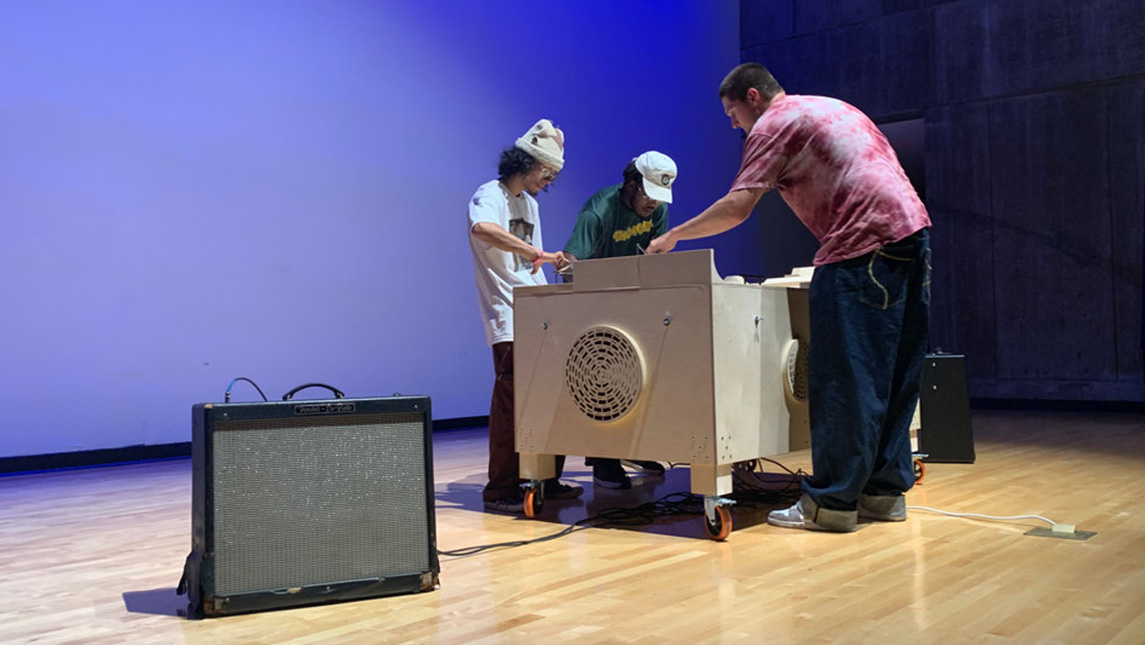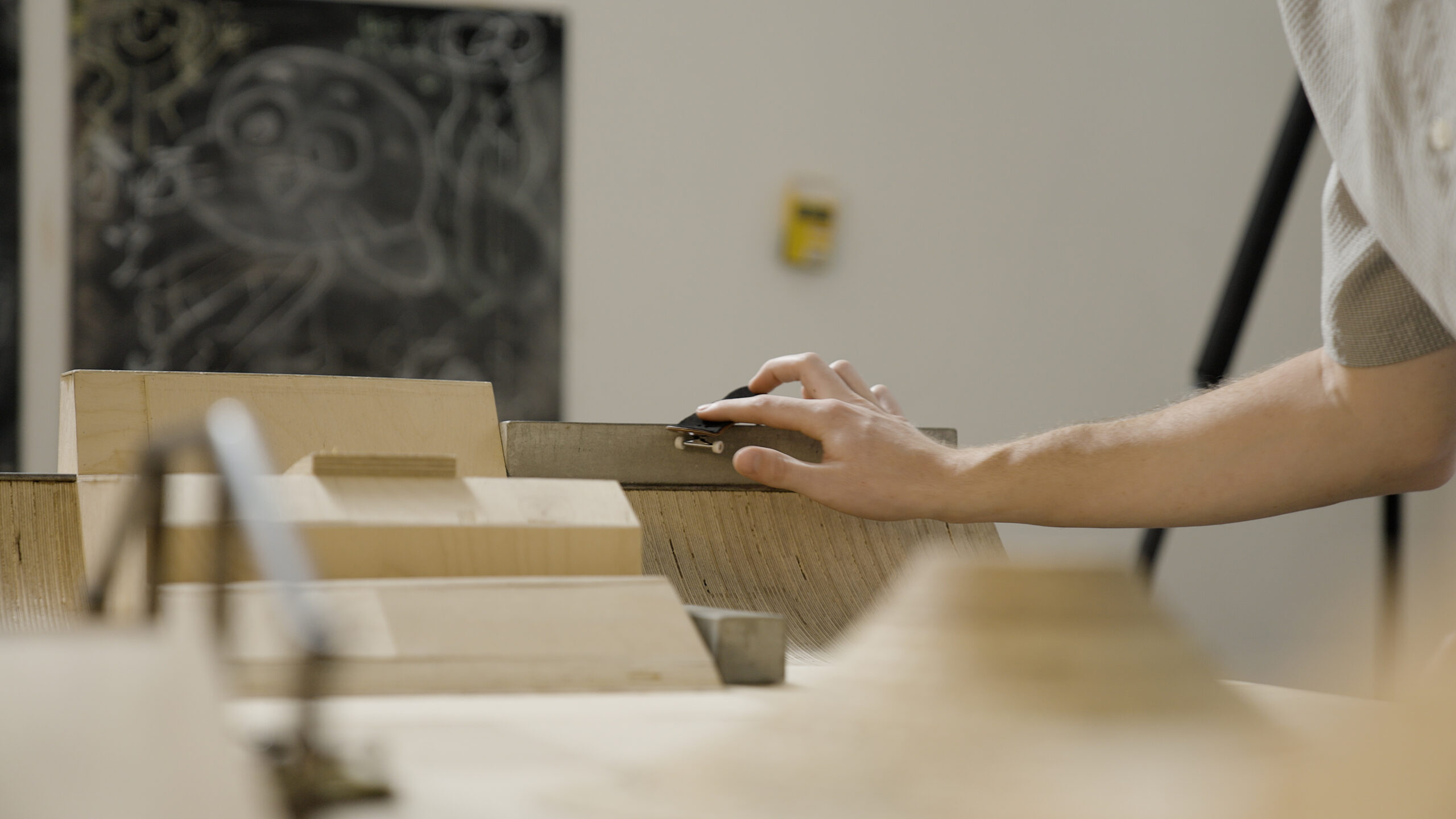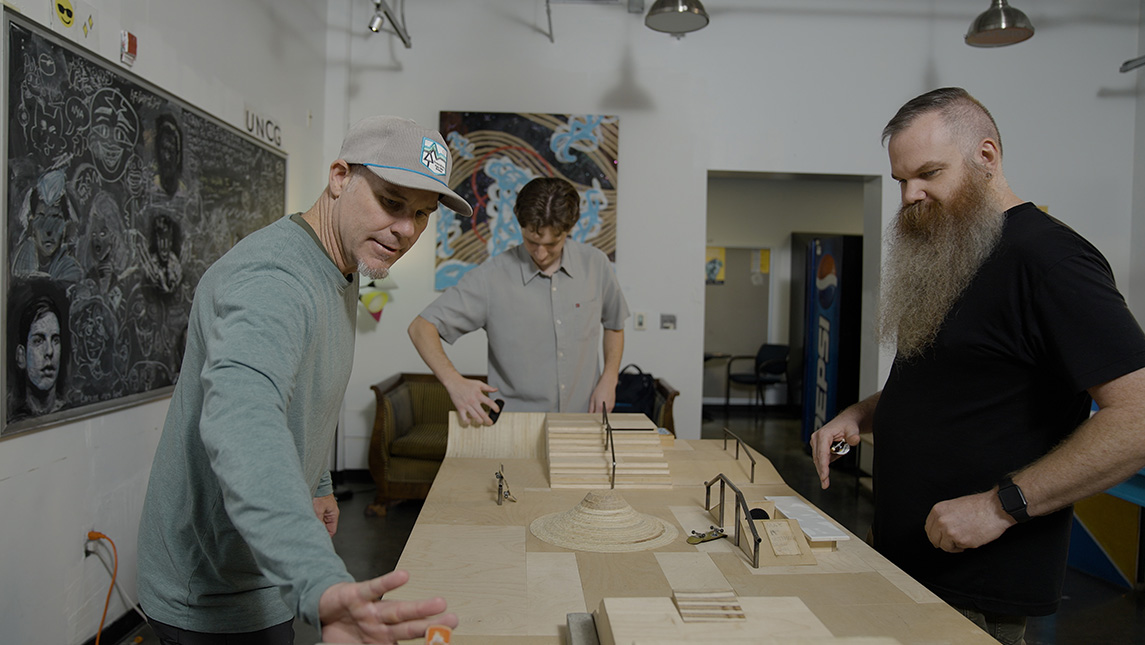SKATING IN THE EXPERTS
Walton and Toomes have collaborated previously, so this was a natural extension of their creative partnership.
“I am drawn to this project because I’m in interior architecture while also having a background in studio arts and installation-based work. We see how architecture and sculpture often activates a space in that lens of art and creativity,” says Toomes.
The miniature skatepark was built in Summer 2022 and is housed in the Gatewood Studio Arts Building. The two faculty members worked with skaters from Stolen Skateshop in Greensboro to draft what their dream skatepark would look like – brainstorming for more than three hours. Microphones under the park, along with an intricate speaker system, amplify the sounds of tiny skateboards shredding and grinding.
“We learned a lot from that process,” says Walton. “We recognize that as skaters, they were experts and they’re a part of our community. They have an insight into an aspect of our culture that others don’t and bringing them to that table was a way of acknowledging their expertise.”
A SPACIAL EXPERIENCE

Fingerboarders Eusi Mentus, Richard Giess, and Frank Mendoza performing with the Fingerboard Skatepark Orchestra at the Everson Museum of Art.
While the skatepark lives at UNCG, it is mobile. Over the summer, it was displayed at the Everson Museum of Art in Syracuse, New York. Different skate shops were invited to use the space. Members of the public were invited to contribute their sounds.
“We don’t often think about how a community can activate a space,” Toomes says. “So, this project brings the community to engage with the space. It becomes a spatial experience for those that are immersed in it and then those that are passing by it are confronted with it.”
In November, the skatepark heads to Chicago for the Chicago Humanities Festival. School of Dance part-time lecturer KT Williams ’23 M.F.A., Greensboro Project Space Director Caitlyn Schrader ’22 M.F.A., and alumna Taylor Taylor ’22 and Sierra Taylor ’22 will be performing along with five other musicians from the University of Chicago. It’s more than just an art piece; it’s a way of bringing people together.
“In the same way the microphones activate the sounds, the skatepark can activate the community. It can bring people together,” says Walton.
COMMUNITY CONNECTION

The project is opening art spaces to those who may have not experienced them before. The three fingerboard skaters who performed at the Everson Museum of Art had been skating on the museum steps for more than a decade, but they’d never been inside. This opportunity inspired them to experience its interior space for the first time.
“There was this moment where the three of them were just looking around at the lights, the seating, and the stage,” Walton says. “They told us how honored they felt to be invited to finger skate on a museum stage.
Without support from the University, both Walton and Toomes say they wouldn’t have been able to create this unique collaborative work.
“UNCG has empowered us in a lot of ways for this project,” Toomes says. “With funding for one, plus UNCG’s connection to the community makes people more accepting of ideas that might seem a little out of the ordinary. The University really allows us to test ideas that we might not feel comfortable with otherwise.”
Story by Avery Craine Powell, University Communications
Videography and photography by David Lee Row, University Communications
Additional photography courtesy of Lee Walton






